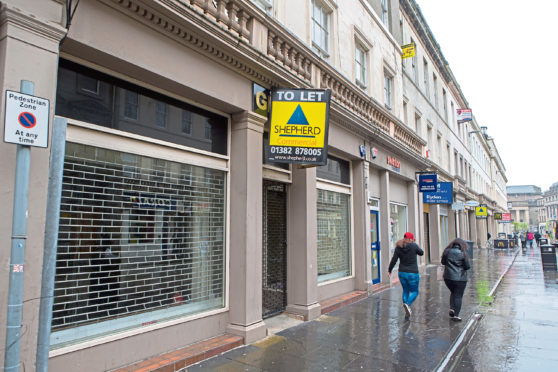Scotland’s High Streets endured a “shocking month” in March as early growth was subsequently decimated by the impact of Covid-19.
The first three weeks of March saw 9% growth, but post-lockdown, this slumped to a 44% decrease in the last two weeks of the period -resulting in the worst ever overall retail sales performance.
On a like-for-like basis, Scottish sales decreased by 14.5% compared to the same period last year.
Total food sales increased by 12.1% against March 2019, but total non-food sales, adjusted for the estimated effect of online sales, decreased by 27.9%.
The statistics have been described as “dismal” Ewan MacDonald Russell, head of policy and external affairs at the Scottish Retail Consortium.
He said: “These are truly dismal figures which expose just how hard retail has been hammered by coronavirus.
“The worst overall retail sales performance ever, the worst non-food sales ever and the worst fashion and footwear sales ever.
“March was nothing less than a shocker on Scotland’s High Streets.”
Mr MacDonald Russell praised the fiscal interventions made by the Scottish and UK Governments to support the economy.
He said: “Those vital and welcome schemes, including rates relief, worker support, and grants, are keeping many retailers afloat.
“Hopefully, that will ensure our industry can play its part in getting the economy back on its feet when the time is right.”
Meanwhile, a report by the Royal Bank of Scotland shows Scotland is one of the areas economically worst-hit by the Covid-19 pandemic.
The bank’s Purchasing Managers Index report (PMI), shows Northern Ireland and Scotland as recording record contractions in output during March.
Containment measures, lower market confidence and business closures all contributed to a broad-based drop in demand for goods and services across March.
The north east region saw the slowest rate of contraction, where demand has been in continuous decline throughout most of the past year.
Firms in Northern Ireland recorded the steepest decline in new business, followed by Scotland.
A lack of incoming new work left firms in all regions with excess staffing capacity, leading to a widespread drop in employment in March, with payroll numbers falling across all regions for the first time in more than a decade.
jimillar@thecourier.co.uk
